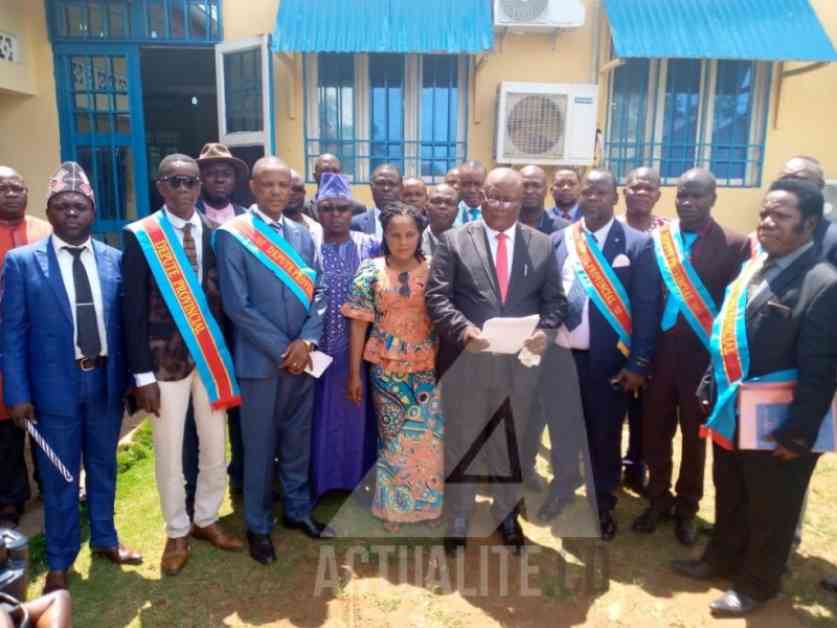**Provincial Deputies Protest Unpaid Salaries with Sit-In at Ministry of Finance**
In the Democratic Republic of Congo, provincial deputies are taking a stand against the non-payment of their salaries for nearly five months. Frustrated by the lack of action, they decided to hold a sit-in in front of the Ministry of Finance this Monday, demanding not only the settlement of their back pay but also the payment of installation fees and those related to the opening of the inaugural session.
**Long Overdue Payments**
The provincial deputies have been vocal about their grievances, seeking the intervention of the upper chamber of Parliament to support their demands and help them achieve a resolution. Their frustrations came to a head on Monday morning as they made their voices heard outside the Ministry of Finance.
**Assurances and Promises**
After meeting with the Minister of Finance, Doudou Fwamba, the deputies were given assurances regarding the payment of their salaries in the coming days. The proposed schedule outlines that undivided provincial assemblies will receive their salaries for September, while divided provinces will be paid for December.
**Moving Forward**
Looking ahead, the minister has pledged regular payments starting from next April, with the possibility of gradually clearing the outstanding payments. Additionally, there is a promise of providing vehicles for provincial deputies, as mentioned by David Bisaka, a provincial deputy from Kwamouth, following the discussions.
**A Personal Perspective**
As a former government employee myself, I understand the frustration and financial strain caused by delayed payments. It’s essential for public servants to receive their salaries on time to support themselves and their families. This situation sheds light on the challenges faced by many individuals in the public sector, emphasizing the need for transparent and efficient payment systems to prevent such issues in the future.
These provincial deputies are not just fighting for their own rights but are also advocating for a fair and just system that values the contributions of all public servants. It is a reminder of the importance of upholding financial commitments and ensuring the well-being of those who dedicate themselves to serving their communities.

















